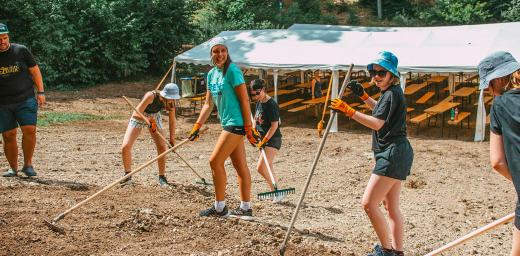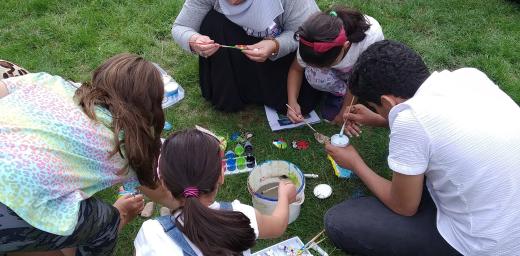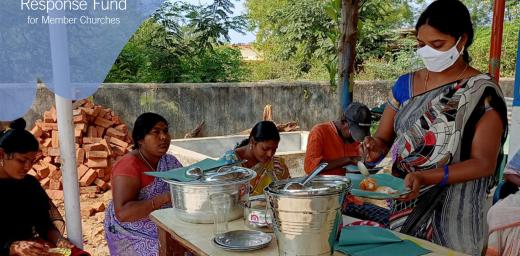COVID-19: Containing the impact of the Corona crisis in Namibia
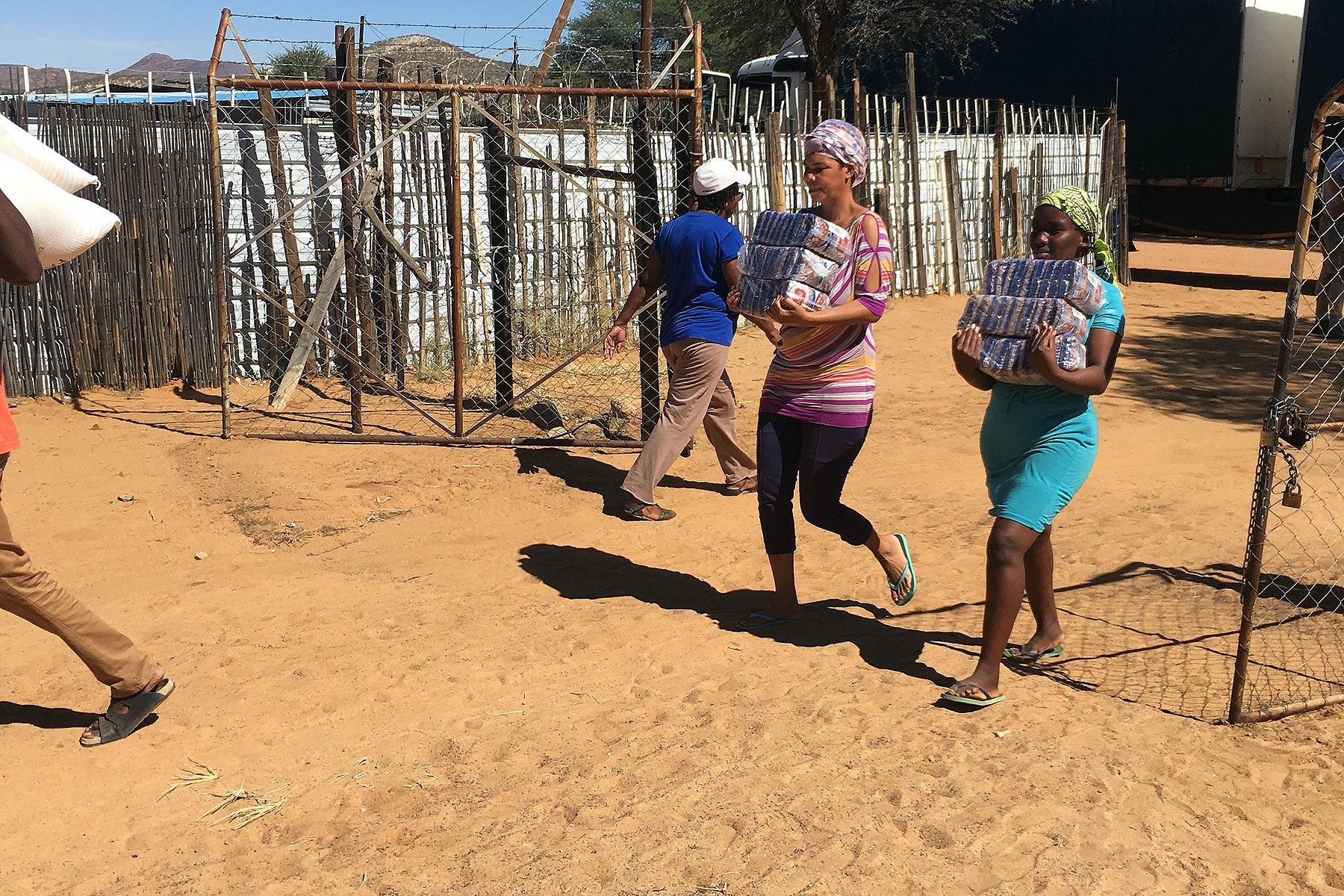
Residents of the Groot Aub community during the distribution of food aid. Photos: ELCIN-GELC
Emergency aid project of Namibian church against malnutrition and hunger
(LWI) - 30 tons of maize meal and 2,5 tons of dry beans are helping the community of Groot Aub, about 40 kilometers south of Namibia's capital Windhoek, to mitigate the effects of the Coronavirus disease (COVID-19) pandemic. An emergency aid project initiated by the Evangelical Lutheran Church in Namibia (ELCIN-GELC) has made this possible.
"The corona crisis has severe effects in Namibia," explains Bishop Burgert Brand. "Although we have only a few infections - so far, only 16 confirmed cases and no deaths - the impact on the poorest in the country is extreme." The Namibian government has imposed rigid measures to prevent the spread of the virus, which have been in force since 28 March. Namibia has limited infrastructure and expertise to combat a pandemic. Borders have been closed and restrictions imposed.
"Many of the poor have earned their daily bread by selling food and other goods at the roadside," Brand explains. "Although these incomes were small, they did provide them with money to feed their families. The lockdown has now cut them off from this source. Many who resisted the measures were arrested or beaten!"
Partnering with another member church of the Council of Churches in Namibia (CCN), the ELCIN-GELC started an ecumenical initiative to relieve the plight of the poorest. Rev. Deolinda de Fonseca, pastor of the Association of Pentecostal Churches in Namibia at Groot Aub, and ELCIN-GELCs project coordinator Ute Brand led the preparations. A network of generous donors in Namibia and abroad, as well as with the active support of local entrepreneurs and farmers made it possible to raise food aid for about 5,000 households without income.
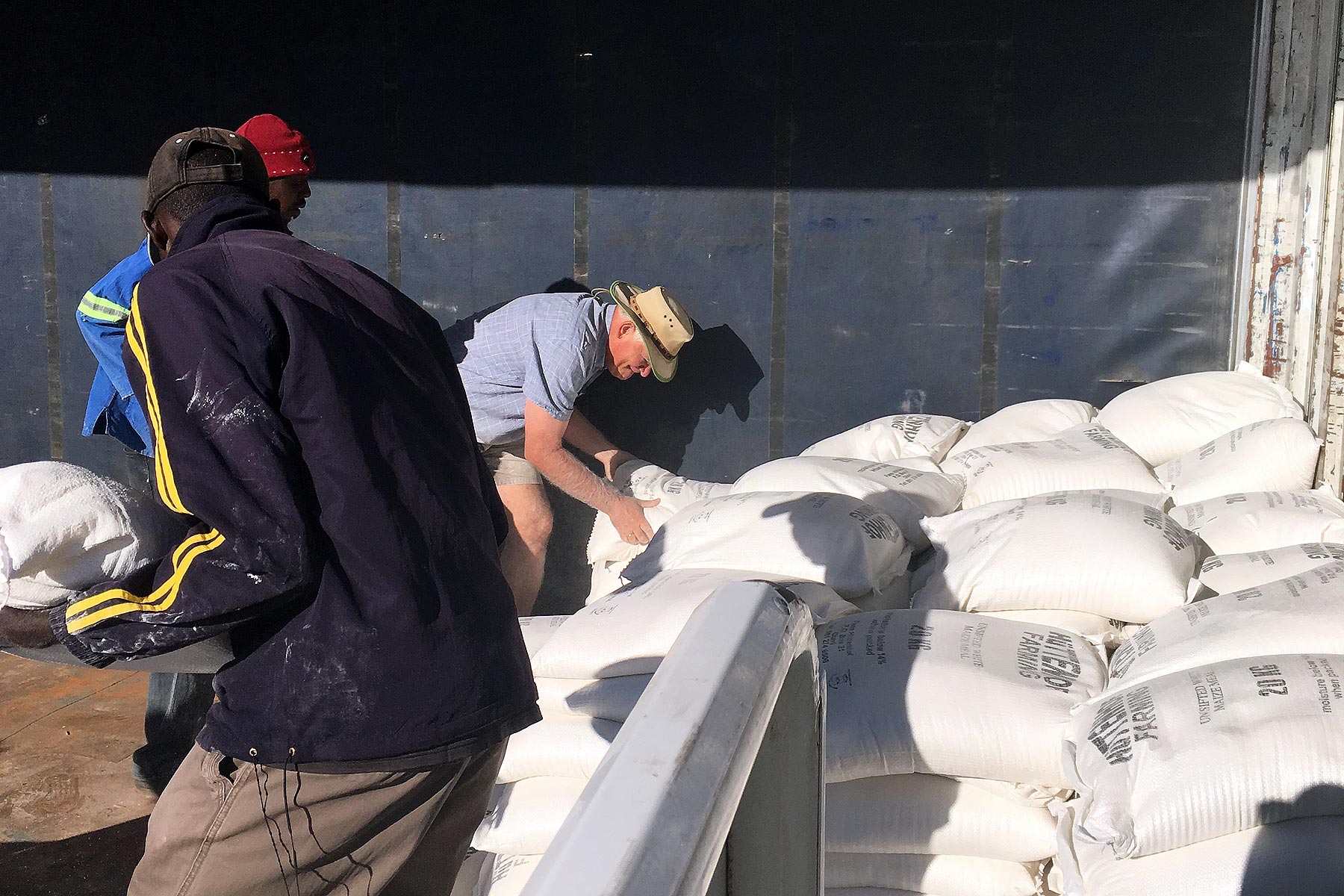
Many helping hands unloading maize meal and beans from the trucks.
On 1 May, many people - young and old - already awaited the trucks loaded with maize meal and beans in Groot Aub. "People cried when they saw the scale of the relief effort. It was beyond their imagination - ours too, by the way," says Ute Brand.
Once everything had been unloaded, Deolinda de Fonseca, together with the village chiefs, took over the distribution of food. "It is important to us that this is done fairly and that every household receives something," the pastor says. Preparing for this action, she had made an inventory, documenting the names and numbers of the households. About five kilograms of maize meal and 500 grams of beans were distributed per household.
"With the food we distributed, the people here can survive the next ten days," says de Fonseca happily. By then, the Namibian government will probably lift COVID-19 measures to such an extent that Namibians can resume parts of their usual day-to-day activities.


